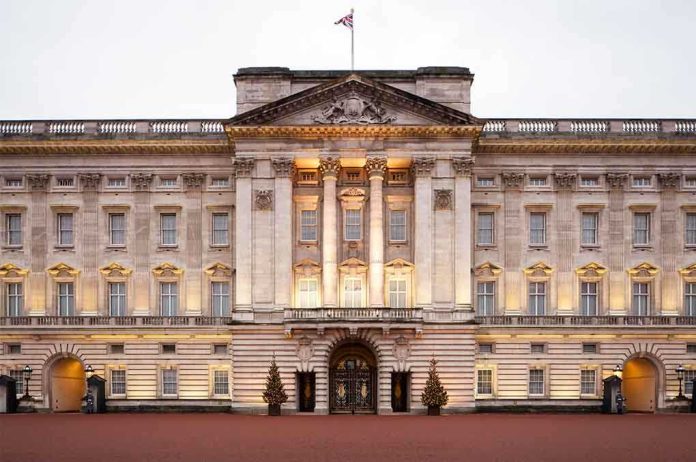
The Duke of York’s decision to relinquish royal titles amid a controversial scandal marks a pivotal moment in royal history.
Story Overview
- Prince Andrew gives up royal titles following Epstein scandal.
- Virginia Giuffre’s family expresses relief and satisfaction.
- King Charles III and public pressure influence Andrew’s decision.
- Giuffre’s memoir adds renewed scrutiny and media focus.
Royal Scandal Unfolds
Prince Andrew, once a prominent figure in the British royal family, has formally agreed to stop using his royal titles and honors. This decision comes as a result of his associations with Jeffrey Epstein, a convicted sex offender. The relinquishment of titles, including his membership in the Order of the Garter, follows intense scrutiny, especially after the publication of Virginia Giuffre’s memoir. This unprecedented move was made after discussions with King Charles III, highlighting the royal family’s response to mounting public and media pressure.
The timeline leading to this decision is marked by several key events. Prince Andrew initially stepped back from public duties in 2019 after a disastrous BBC interview. In 2022, he was stripped of honorary military appointments and the use of “His Royal Highness” style. The publication of Giuffre’s memoir in 2024-2025 reignited scrutiny, culminating in Andrew’s October 2025 announcement. These developments underscore the dynamic between the royal family and public opinion, with Andrew’s actions setting a new precedent for handling royal scandals.
The Giuffre Family’s Perspective
For Virginia Giuffre and her family, Andrew’s decision represents a significant form of accountability. They have long sought justice and public acknowledgment of Andrew’s alleged misconduct. The family expressed relief and satisfaction at this development, viewing it as a step towards vindication. Giuffre’s memoir played a critical role in renewing media attention and public interest, placing additional pressure on the royal family to act decisively in the wake of increasing demands for transparency and accountability.
The decision has broader implications beyond the royal family. It serves as a reminder of the power dynamics involved, with the monarchy balancing family loyalty against public reputation. King Charles III’s role as a decision-maker in this process highlights the delicate nature of royal responsibilities in modern society. The decision also reinforces the importance of media and public scrutiny in influencing significant institutional changes.
Impact and Implications
The short-term impact of Andrew’s decision includes heightened scrutiny of the royal family’s handling of scandals and temporary relief for Giuffre and other alleged victims. In the long term, this situation may set a precedent for dealing with royal controversies and scandals. The decision could potentially lead to legislative action concerning royal titles, highlighting ongoing challenges for the monarchy in maintaining its reputation amidst growing calls for reform and transparency.
Affected parties include the royal family, particularly Andrew and his immediate relatives, as well as survivors of sexual abuse who may feel empowered by the outcome. Charities and organizations formerly associated with Andrew and Sarah Ferguson also face potential impacts, with some distancing themselves in response to the scandal. The situation underscores the complex interplay between public accountability and the responsibilities of high-profile institutions.
Expert Insights and Analysis
Commentators and experts have weighed in on the implications of Andrew’s decision. Royal commentators note the unprecedented nature of Andrew’s relinquishment of titles and the pressure on King Charles to act decisively. Legal experts highlight the complexity of formally removing peerage titles, which requires parliamentary action. Historians compare the current situation to past royal crises, noting the unique legal, moral, and public relations challenges involved.
There are diverse viewpoints on the sufficiency of Andrew’s actions. Some experts argue that the move is necessary but insufficient, calling for further accountability measures. Others emphasize the importance of due process, cautioning against conflating allegations with proven guilt. These perspectives reflect the ongoing debates surrounding the balance between public accountability and institutional integrity.



